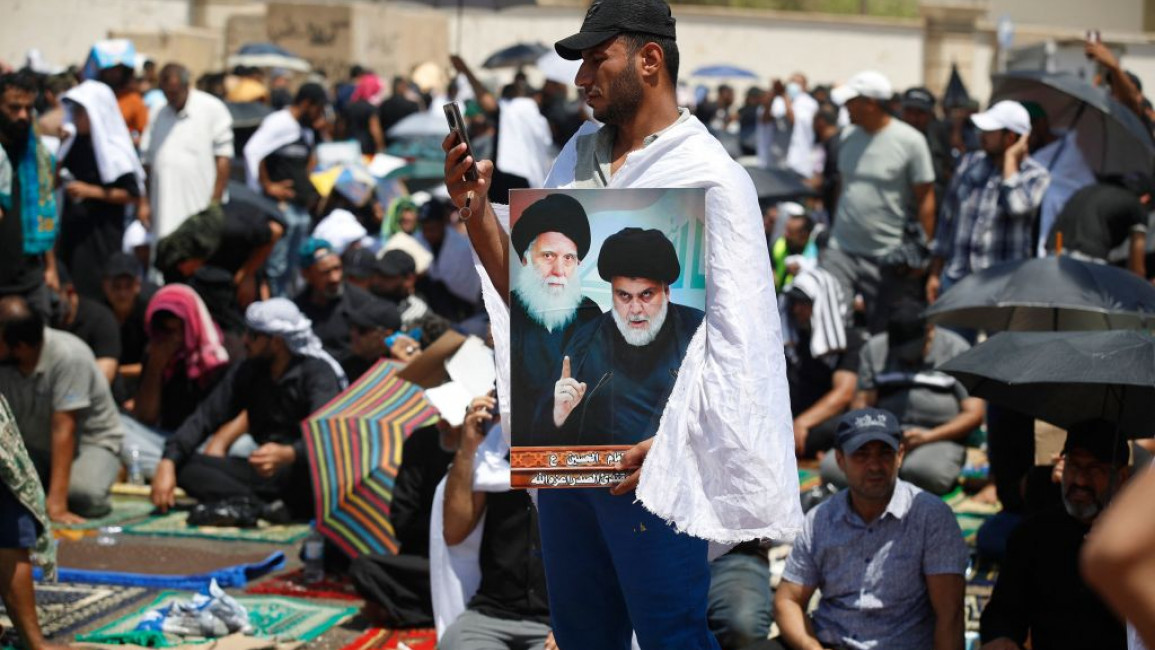Iraq: Sadr supporters step up pressure with prayers in Baghdad's Green Zone
Thousands of supporters of Iraq's powerful Shia Muslim cleric Muqtada Al-Sadr stepped up their pressure tactics on Friday with a weekly prayer session in Baghdad's high-security Green Zone they have occupied for three weeks.
Tensions in the impoverished, war-scarred country have escalated over the inability of political factions to agree on formation of a government, 10 months after parliamentary elections.
Sadr once led an anti-US militia and has millions of devoted followers. Some of them stormed Iraq's parliament late last month and began a sit-in, first inside the building and then on its grounds where thousands remain.
More recently, their opponents from a pro-Iran bloc, the Coordination Framework, began their own sit-in on an avenue leading to the Green Zone which houses government institutions and foreign embassies.
"Yes! Yes to Muqtada!" the cleric's followers chanted as the prayers began under a blazing sun.
Sadr did not attend.
Neither was he present on Wednesday when caretaker Prime Minister Mustafa Al-Kadhimi met party and other leaders to discuss the political deadlock, which ordinary Iraqis see as having nothing to do with their daily struggles.
Nearly two decades after a US-led invasion toppled dictator Saddam Hussein, the country is blighted by endemic corruption, ailing infrastructure, power cuts, and unemployment.
Sadr wants parliament dissolved to pave the way for new elections, and his followers see him as a champion of the anti-corruption fight.
Their opponents in the Framework seek a transitional government before new polls.
The Coordination Framework comprises former paramilitaries of the Iran-backed Al-Hashd Al-Shaabi network, and the party of former prime minister Nouri Al-Maliki, a longtime Sadr foe.
Maliki was among those who attended the talks on Wednesday, when political leaders agreed to work on a roadmap aimed at ending the impasse which has left the country without a new prime minister or president.
Mohaned Al-Moussaoui, who is close to Sadr, said during his Friday sermon that the "political dialogue is only in the name of your political interests and supporters, and not in the interest of the people".



